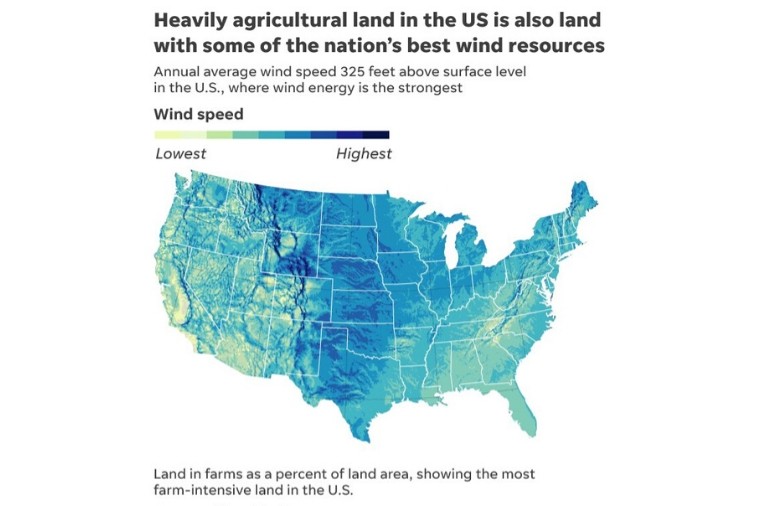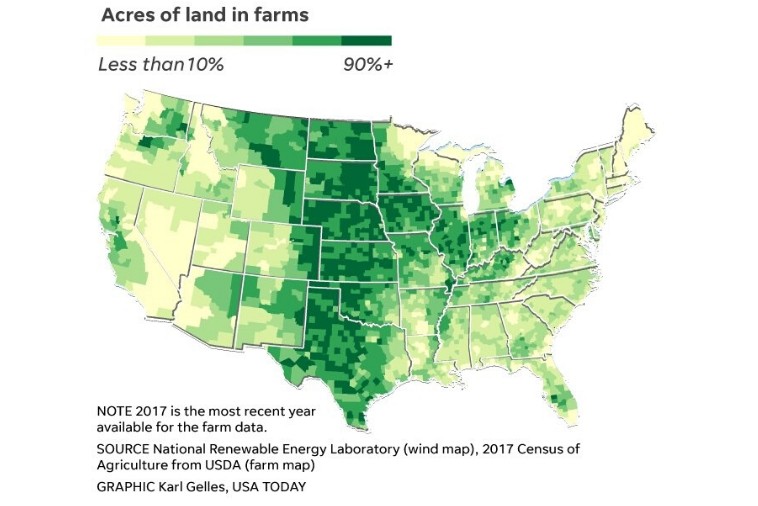A sometimes controversial form of energy
Wind turbines produce cheap, pollution-free energy as more than 30 states have set goals requiring 2% (South Carolina) to 100% (California, Hawaii, Maine and Washington) of their energy be from renewable sources.
The turbines are increasingly controversial. Some people don’t like how they look, others point to theories that they cause cancer and other ills – a statement President Donald Trump echoed last year in a speech, although more than 25 scientific studies found no correlation between living near a turbine and risks to human health.


In November, the largest study looking at the feelings of people who live within 5 miles of wind turbines found high overall acceptance of wind power projects. Funded by the U.S. Department of Energy and conducted by Lawrence Berkeley National Laboratory, researchers surveyed 1,705 people, 36% of whom lived less than half a mile of a turbine and 30% who lived within a mile.
Roughly 57% had positive or very positive attitudes about them, 34% neutral and 8% negative or very negative.
For people who lived within half a mile, 75% had either neutral or positive feelings about the wind project while 25% had negative or very negative attitudes.
Efforts to stop new wind farms have ramped up in the past few years. An 80-turbine project in Reno County, Kansas, was voted down by the County Commission last year because of homeowner concerns about property values and possible health effects.
Although the U.S. wind belt includes much of the Midwest, an area that is generally conservative, wind power isn’t generally seen here as either liberal or conservative. “Remember, 90% of the wind farms in this country are in red states,” said Ryan Orban, plant manager at the Elk River Wind Farm where Farrell’s ranch is located. The turbines take up slivers of land on the five ranches whose fields they dot. The wind farm is owned by
Avangrid Renewables, based in Portland, Oregon. It is part of Iberdrola Group, a Spanish energy company.
For many, it’s simply about property rights.
“I don’t want anybody telling me what I can or can’t do with my land,” said Jack Thimesch, a farmer and rancher in Kingman County, Kansas,who’s a Republican state legislator.
Click to next page to continue reading






